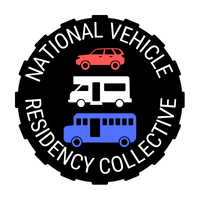FAQs About Vehicle Residency
What is vehicle residency?
Vehicle residents are individuals who live in their vehicles. This includes all vehicles, any length of time, for any reason.
Why would someone choose to live in their vehicle?
Vehicle residents may choose to live in their vehicle because:
- They want to travel
- They enjoy a mobile lifestyle
- Eviction
- Job Loss
- They do not have access to affordable permanent housing
- They do not want to be separated from their spouse, partner, child, or pet.
- They need to flee an unsafe situation
- They do not have another secure location to store their possessions.
- They want the safety and privacy of sleeping in their own car vs. a communal shelter.
- They don’t fit in the shelter system (aging, medical disability, LGBTQ, child/teen, etc.) or can’t get into the preferred “enhanced” shelter.
1
Is it legal to live in your vehicle?
There are no federal laws that prohibit vehicle residency. However, many municipalities have enacted laws and regulations that restrict or prohibit living in a vehicle in a particular area or parking overnight. This is often done as an effort to deter ‘homelessness’ within a community.
Are Vehicle Residents Homeless?
Some vehicle residents may consider themselves homeless and some may not. Some want access to services designed to provide shelter and housing to the unhoused and some may not.
There are many reasons and circumstances that lead to an individual becoming a vehicle resident and classifying all as ‘homeless’ does not represent the great diversity within the community.
Classifying all Vehicle Residents as homeless assumes that a vehicle is an undesirable form of housing that individuals cannot benefit from.
Choosing to see vehicle residency as an asset, a benefit to the vehicle resident and the community, allows for policy and laws that respect an individuals right to live how they wish to live.
Where can Vehicle Residents park?
Many Vehicle Residents choose to live and park in public spaces. This could include street parking in developed areas and BLM or National Forrest in undeveloped areas.
Some Vehicle Residents park on private property owned by friends and family or in public and private campgrounds.
Additionally, many Vehicle Residents live and park where they work either as seasonal workers or work-campers.
Across the US, many organizations are providing Parking Programs specifically for Vehicle Residents in their community. Many of these programs require registration and offer other social services.
You can find a list of known Parking Programs in our Resources section.
- Vehicle Residency, Ariel Chan, https://ariellchan.com/vehicle-residency ↩︎
